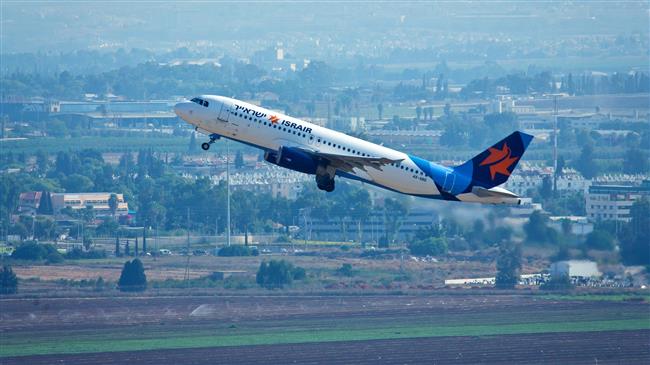Saudi regime officially allows UAE-bound ‘israeli’ fights to cross airspace
Saudi Arabia has officially agreed to let Israeli airliners cross its airspace en route to the United Arab Emirates (UAE), following a flurry of talks between the kingdom’s officials and US President Donald Trump’s adviser and son-in-law, Jared Kushner.

The agreement was hammered out on Monday evening, just hours before Israel’s first commercial flight between Tel Aviv and Dubai scheduled for Tuesday morning. The Israir Airlines flight risked cancelation before Saudi Arabia granted long-sought overflight permission to Israel, according to Hebrew media reports.
Israeli Channel 12 television network said the agreement was only good for the next four days and only covered flights to Dubai.
It was not immediately clear if the permission extended to Israel’s carrier El Al, which is also set to launch regular flights to the UAE next month.
An unnamed Israeli official familiar with the matter, however, said there was a “green light” in principle, but the formalities had not yet been sorted out.
A senior Trump administration official told Reuters news agency that Kushner and Middle East envoys Avi Berkowitz and Brian Hook raised the issue of Israeli flights over Saudi airspace shortly after they arrived in Saudi Arabia for talks.
FlyDubai operated the first direct tourist flight from Tel Aviv to Dubai earlier in November, carrying some 174 businessmen and tourists on historic flight FZ8194 over Saudi airspace.
Kushner’s visit is an apparent last-ditch effort to broker a normalization deal between Saudi Arabia and Israel, especially after Israeli Prime Minister Benjamin Netanyahu’s secret flight to the kingdom, where he reportedly met with Saudi Crown Prince Mohammed bin Salman and US Secretary of State Mike Pompeo.
The direct flights are an offshoot of normalization deals the Tel Aviv reached lately with the UAE and Bahrain.
Trump announced on October 23 at the White House that Sudan and Israel had also agreed to normalize relations. The agreement has not been finalized yet.
The normalization deals have drawn widespread condemnation from Palestinians, who seek an independent state in the occupied West Bank and Gaza Strip, with East Jerusalem al-Quds as its capital. They say the deals ignore their rights and do not serve the Palestinian cause.







